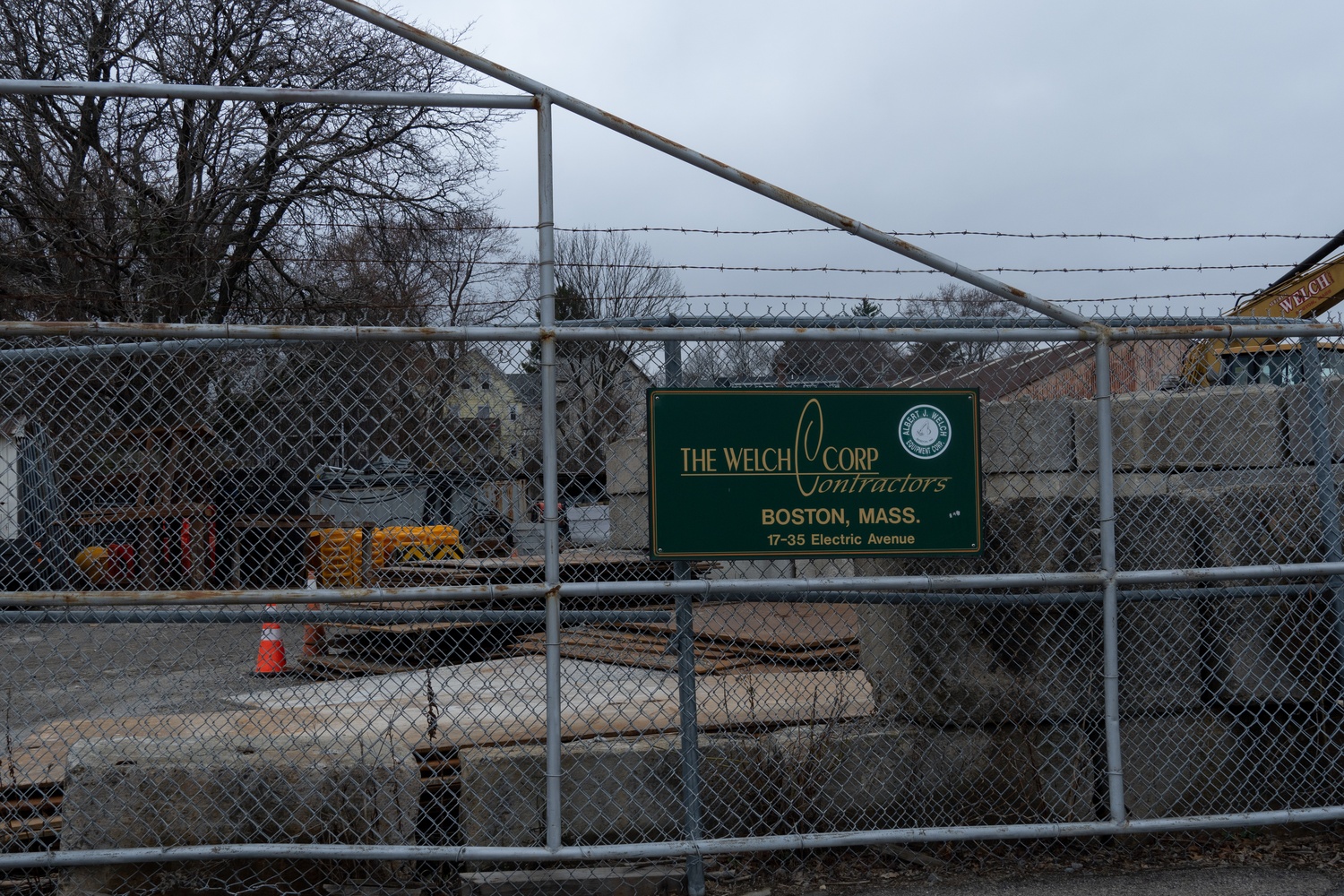
News
Summers Will Not Finish Semester of Teaching as Harvard Investigates Epstein Ties

News
Harvard College Students Report Favoring Divestment from Israel in HUA Survey

News
‘He Should Resign’: Harvard Undergrads Take Hard Line Against Summers Over Epstein Scandal

News
Harvard To Launch New Investigation Into Epstein’s Ties to Summers, Other University Affiliates

News
Harvard Students To Vote on Divestment From Israel in Inaugural HUA Election Survey
Fears Over Safety of Energy Facility in Brighton Will Lead City to Adopt New Regulations

A Battery Energy Storage System proposed for construction in Brighton at 35 Electric Ave. has generated a wave of resident backlash to underdeveloped regulation of BESS facilities, which state officials say are necessary to achieve carbon neutrality.
The project would house lithium-ion batteries to stabilize the region’s clean energy supply in a two-story, 55,000 square foot facility in a residential neighborhood. But residents who live just feet from the site have mobilized to oppose the project, forming the advocacy group Empower Brighton & Allston and delivering extensive testimony against the project at a City Council hearing last week.
The advocacy group and other residents worry that the battery storage facility will be prone to fire or release toxic chemicals into the neighborhood.
Several residents have cited failed storage systems in other parts of the country, including the Moss Landing power plant in Monterey County, California, which erupted in flames last January. The lithium batteries destroyed in the fire released hazardous gas, forcing residents nearby to evacuate.
In light of those risks, many have argued the city’s existing regulations, which are not designed to address this kind of facility, will not protect the surrounding area. The facility would border a public playground and an affordable housing complex.
“The BPDA meetings on the Electric Avenue Project provide considerable evidence that the present Article 80 process is ill-equipped to evaluate BESS,” testified Kevin M. Carragee, a member of Empower Brighton & Allston who lives 1,500 feet from the site. “They provided residents with no independent analysis of fire safety and public health concerns.”
In light of mounting complaints, the city’s planning department has responded with a stated commitment to update its regulatory framework to adequately identify risks associated with such facilities.
A week before the hearing, the Boston Planning Department wrote in its newsletter that the city would work to “develop comprehensive guidelines and educational materials” for BESS projects over the coming months.
“After this work is complete, we will be better positioned to evaluate site specific proposals like the proposal on Electric Avenue,” the newsletter post read.
Jessica C. Kraft, a Brighton resident who lives near the site, said she was concerned that a storage site would be built in such a densely populated residential area despite numerous instances of BESS facilities catching fire nationwide.
“There have been real fires. There’s been explosions. There’s been serious public health concerns linked to these facilities,” Kraft said. “The toxic chemicals released in these events could pose serious health threats to not only residents or first responders, but also the environment.”
Bruce A. Chabner, a professor of medicine at Harvard Medical School, also said that exposure to the chemicals involved in the construction of battery storage facilities can cause longer-term health issues like cancer.
“There are certain toxic exposures related to lithium, in terms of fires — the production of hydrogen fluoride, for example,” Chabner said.
Kraft added that any potential incident at the facility might also risk hurting the home values of those in the vicinity.
Boston City Councilor Elizabeth A. “Liz” Breadon, who represents Allston-Brighton, organized last week’s public hearing, which featured panelists representing the state’s energy agencies and Boston’s environmental, planning, and fire departments.
The Inspectional Services Department supported the effort to update regulation.
“We need more regulatory zoning from BPDA. We need more guidance before ISD can say something about this one here, as enforcer, and also the permitting body here for the City of Boston for constructions,” ISD Deputy Building Commissioner Marc Joseph said at the hearing.
Michael R. Judge, the state’s Undersecretary of Energy, said his office was working to change “permitting rules and some site suitability criteria” in response to similar concerns. The state has regulatory jurisdiction over large battery storage projects, like the one in Brighton.
At the hearing, the BPD acknowledged the need to update zoning regulations to create clear definitions for different types of battery energy storage systems and align its requirements with state and national zoning codes.
In its newsletter last week, the Planning Department wrote that “While the BESS will play an important role in our energy transition, the City recognizes that it is a new and atypical land use in many of our neighborhoods.”
“We want to ensure that there is thoughtful planning informed by important safety considerations to identify appropriate siting and management of this emerging technology,” they continued.
Correction: April 9, 2025
A previous version of this article incorrectly described the proposed Battery Energy Storage System at 35 Electric Ave. as Boston’s first BESS. In fact, a BESS was installed at 55 Bartlett Circle Drive in Roxbury in 2024.
—Staff writer Angelina J. Parker can be reached at angelina.parker@thecrimson.com. Follow her on X @angelinajparker.
—Staff writer Emily T. Schwartz can be reached at emily.schwartz@thecrimson.com. Follow her on X @EmilySchwartz37.
Want to keep up with breaking news? Subscribe to our email newsletter.
